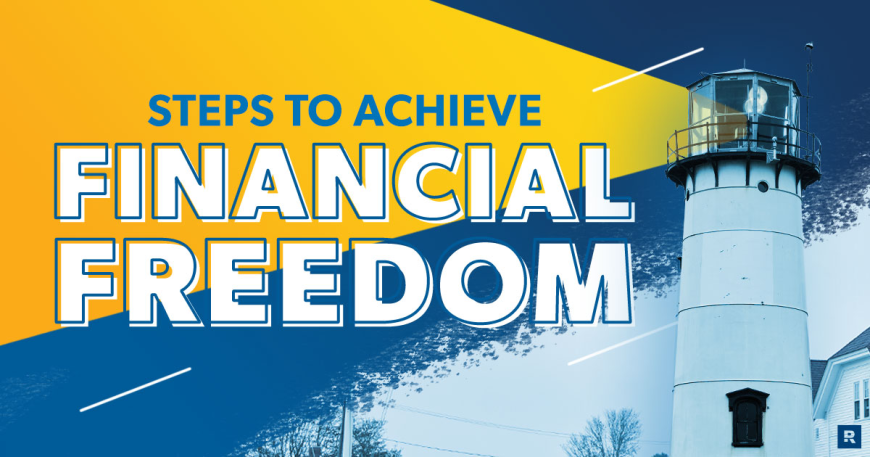How To Obtain Financial Freedom
Achieving Financial Freedom: A Comprehensive Guide to Securing Your Financial Future

In today’s fast-paced world, the concept of financial freedom has become a paramount goal for many individuals. It represents a state of financial well-being where one has sufficient personal wealth to live without being actively employed or dependent on others. Achieving financial freedom is not merely about accumulating wealth; it’s about creating a lifestyle that allows for peace of mind, flexibility, and the ability to pursue one's passions without the constraints of financial stress. This article will delve into the steps necessary to obtain financial freedom, providing a structured approach to managing finances, investing wisely, and building wealth over time.
Understanding Financial Freedom
Financial freedom can mean different things to different people. For some, it may mean having enough savings to retire early; for others, it might be about living comfortably without debt. The foundation of financial freedom lies in understanding your financial goals, establishing a budget, managing expenses, and planning for the future.
Step 1: Setting Clear Financial Goals
The first step towards financial freedom is to define what it means to you. Setting clear, achievable financial goals is crucial. Consider the following when establishing your goals:
1. Short-term Goals: These could include paying off credit card debt, saving for a vacation, or building an emergency fund. Typically, short-term goals are those achievable within one to five years.
2. Medium-term Goals: These may involve saving for a down payment on a house, funding a child’s education, or starting a business. Medium-term goals usually span five to ten years.
3. Long-term Goals: This category includes retirement savings, building generational wealth, or creating a legacy. Long-term goals often span ten years or longer.
Writing down your goals and regularly reviewing them can keep you motivated and accountable.
Step 2: Creating a Budget
Budgeting is a fundamental aspect of achieving financial freedom. A well-structured budget allows you to track your income and expenses, ensuring you live within your means. Here are the steps to creating an effective budget:
1. Track Your Income: Document all sources of income, including salaries, bonuses, freelance work, and passive income.
2. List Your Expenses: Categorize your expenses into fixed (rent, utilities, insurance) and variable (groceries, entertainment, dining out).
3. Analyze and Adjust: Compare your total income to your total expenses. If expenses exceed income, identify areas where you can cut back. Aim to allocate a portion of your income to savings and investments.
4. Use Budgeting Tools: Consider using budgeting apps or financial software to manage your finances more efficiently.
Step 3: Building an Emergency Fund
An emergency fund is a financial safety net that can protect you from unexpected expenses such as medical emergencies, job loss, or urgent repairs. Financial experts typically recommend saving three to six months' worth of living expenses. This fund should be easily accessible but separate from your regular checking and savings accounts.
Step 4: Eliminating Debt
Debt can be a significant barrier to financial freedom. Prioritizing debt repayment is essential. Consider the following strategies:
1. Debt Snowball Method: Focus on paying off your smallest debts first while making minimum payments on larger ones. Once a smaller debt is paid off, move to the next smallest.
2. Debt Avalanche Method: Pay off debts with the highest interest rates first, which can save you money in the long run.
3. Negotiate with Creditors: Sometimes, creditors are willing to negotiate lower interest rates or payment plans.
Step 5: Investing for the Future
Once you’ve established a budget, built an emergency fund, and eliminated debt, the next step is to invest. Investing allows your money to grow over time, helping you achieve your long-term financial goals. Here are key investment strategies:
1. Start Early: The power of compound interest means that the earlier you start investing, the more your money can grow.
2. Diversify Your Portfolio: Spread your investments across various asset classes—stocks, bonds, real estate, and mutual funds—to minimize risk.
3. Consider Retirement Accounts: Contribute to retirement accounts such as a 401(k) or an IRA. These accounts offer tax advantages and can significantly boost your retirement savings.
4. Stay Informed: Regularly educate yourself about investment strategies, market trends, and economic factors that could impact your portfolio.
Step 6: Continuous Learning and Adaptation
The journey to financial freedom is ongoing. As you progress, it’s essential to continue learning about personal finance and investing. Consider the following:
1. Read Books and Articles: There are countless resources available that can enhance your financial literacy.
2. Attend Workshops and Seminars: Many organizations offer workshops on personal finance, investing, and wealth management.
3. Consult a Financial Advisor: If you feel overwhelmed, consider seeking guidance from a certified financial planner who can provide personalized advice tailored to your situation.
Step 7: Cultivating a Wealth Mindset
Achieving financial freedom also requires a shift in mindset. Cultivating a wealth mindset involves adopting attitudes and behaviors that promote financial success:
1. Think Long-Term: Focus on long-term financial stability rather than short-term gratification.
2. Embrace Discipline: Financial freedom requires commitment and discipline in managing your money.
3. Stay Positive: Maintaining a positive outlook can help you navigate financial challenges and stay motivated on your journey.
Conclusion
Achieving financial freedom is a multifaceted journey that requires careful planning, disciplined execution, and continuous learning. By setting clear goals, creating and adhering to a budget, building an emergency fund, eliminating debt, investing wisely, and cultivating a wealth mindset, you can set yourself on a path toward financial independence. While the road may be challenging, the rewards of financial freedom—security, flexibility, and peace of mind—are well worth the effort. Start today, and take control of your financial future.























